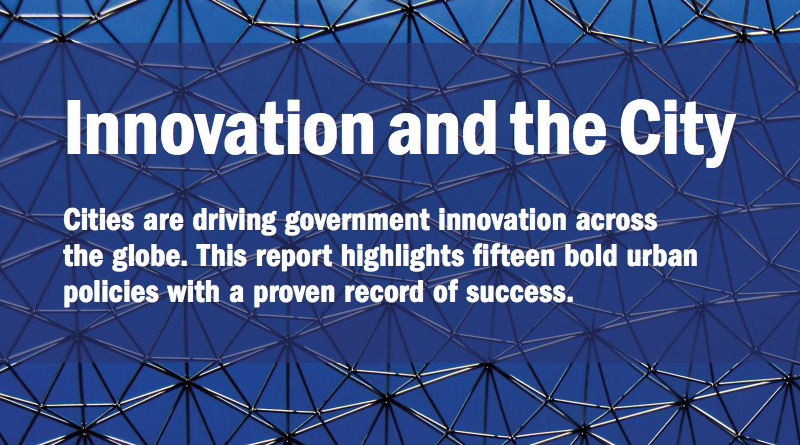Innovation & the City Report Highlights Cities That Reduce Recidivism
NEW YORK — With support from the Citi Foundation, New York University Robert F. Wagner Graduate School of Public Service (NYU Wagner) and the Center for an Urban Future (both located in New York), a report was released, titled Innovation and the City, in November that highlights 15 bold urban policies that are helping change government innovation across the globe. Two of the policies in San Francisco and Lansing, Mich., were highlighted for their efforts in reducing recidivism.
NYU Wagner and the Center for an Urban Future selected the 15 urban policy reforms after conducting hundreds of interviews with mayors, agency chiefs, policy experts, academics, business leaders, labor unions and philanthropic foundations. The 15 were chosen based on three criteria: whether or not the innovation had a fresh approach, whether it was exportable and could be adapted by other cities, and whether it had success at scale and had enough data to prove its value.
“Dynamic and effective city policies can be found in every corner of the globe, and the impact of these programs is astounding,” said Neil Kleiman, director of NYU Wagner Innovation Labs and report co-author, in a statement. “Policymakers would be wise to look to other cities for inspiration when trying to solve major societal problems.”
The report highlighted Five Keys Charter School in San Francisco because it’s the nation’s only charter school located inside a city’s correctional system. The school receives state educational funding and actually helps educate inmates and the formerly incarcerated in order to get a high school diploma instead of just a GED. It also helps provide services to continue educational instruction after release from the correctional setting, preparing inmates for job security after prison. Founded in 2003, Five Keys provides the comprehensive K-12 educational services to inmates in the San Francisco County Jail as well as contracts to serve inmates in Los Angeles, Alameda and Solano counties. More than 1,500 students have graduated with high school diplomas, with nearly 60 percent of students in the most recent school year demonstrating learning gains, according to the report.
The Financial Empowerment Centers for Reentry in Lansing, Mich., was also highlighted in the report for its efforts in providing formerly incarcerated citizens with free financial counseling. The centers help former inmates who are living in transitional housing reduce debt, open bank accounts and increase savings in an effort to keep them from re-entering the justice system. Although the program was only still in the pilot phase at the time the report was released, the program had already reduced more than $432,000 in debt, opened 14 bank accounts and increased savings by $3,500.

